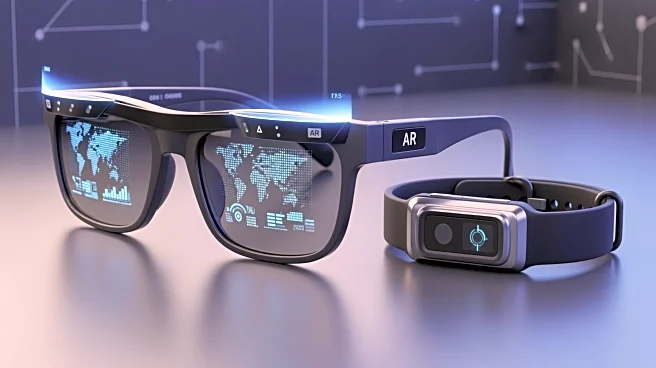What's Happening?
Meta has announced the release of consumer-facing smart glasses equipped with a built-in display and wristband controller, marking a significant shift from developer demos to retail-ready hardware. This
move is expected to accelerate the adoption of augmented reality (AR) technologies, with IDC forecasting a 39.2% growth in headset shipments for 2025. The announcement places Meta in direct competition with other tech giants like Amazon and Samsung, who are also developing AR glasses. The introduction of these smart glasses raises questions about costs, privacy, and app-store dynamics, as developers and consumers adapt to this new technology.
Why It's Important?
The unveiling of Meta's smart glasses is poised to significantly impact the AR market by shifting focus from prototypes to product cycles. This development could lead to a rapid expansion of the app economy, retail logistics, and new advertising formats. For consumers, it means earlier access to advanced AR features such as heads-up maps and shopping overlays, although it also presents challenges related to privacy and higher price points. The competitive pressure on rivals like Amazon and Samsung may result in faster innovation and broader adoption of AR technologies.
What's Next?
As Meta's smart glasses enter the market, developers and advertisers face a compressed timeline to create engaging experiences before the holiday season. The success of these glasses will depend on their ability to deliver on price, battery life, and software capabilities. If developers can attract early users, platforms may quickly establish ecosystems, but if the hardware fails to meet expectations, momentum could stall. The industry will be watching closely to see if Meta's hardware can translate into recurring revenue beyond initial device sales.
Beyond the Headlines
The introduction of Meta's smart glasses could have deeper implications for privacy and data management, as the integration of AR into daily life raises concerns about biometric data sharing and user consent. Additionally, the shift towards consumer-ready AR products may influence cultural perceptions of technology, as users navigate the balance between convenience and privacy.









